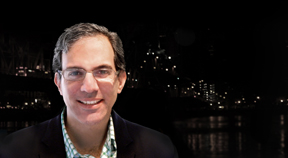Agenda 2021 Special Feature: A shift in customer engagement
A shift in customer engagement
By Gregg Fisher, managing partner of The Stem
COVID was a catalyst for Pharmaceutical and Life Sciences companies to accelerate their investments in evolving their customer engagement models. For the few companies who made sustained investments in culture, people, and process over the years, the acceleration was manageable. COVID served as a differentiator and provided the opportunity to scale and optimize.
For many other companies, who hadn’t fundamentally altered their customer engagement approaches, COVID served to underscore the limitations of traditional customer engagement models and highlight the need for urgent change.
In this context, brand, commercial and medical teams in 2021 will increasingly need advice and hands-on support to guide their customer engagement transformations. Agencies who can provide these higher order “consulting” skills and serve as a strategic change partner (above and beyond pure campaign tactical execution) will be of great and timely value.
Specific areas of growing need will likely include:
• Transformation support: making the case for change, deciding where to invest, advising on organizational change
• Customer engagement planning: customer insights, communications planning and omni-channel experience plans
• Customer engagement excellence: supporting capability development, in terms of people, process and tools
• Change management support: assisting with change planning and communication
• Execution management: helping to make execution happen
But providing sophisticated consulting advice and change management support will be a challenge for agencies who are organized primarily as creative marketing or technology agencies because the business model of providing consulting services is very different in terms of incentives and the talent needed. Consulting organizations have strong incentives to solve client problems regardless of where the solution lies by applying strategic thinking, innovation, partnerships, best practice and change and execution skills. Creative marketing and technology agencies on the other hand have built-in incentives to sell creative or technical execution work that keeps talent billable. In consulting organizations talent is weighted toward strategy and consulting skills whereas the same is often thinly staffed at creative and technology agencies and is seen as a “loss leader” focused on driving downstream creative and technology services.
It truly takes a village to transform customer engagement within Life Sciences. A careful blend of skills and talent matched to specific needs. While there are some services firms that have cracked the code and are providing high levels of quality across consulting, creative and technology services the cultural and operational issues associated with blending these business models are not trivial.
So, an important lesson for clients is to strongly consider a “best of breed model” that balances the contribution of consulting organizations with those of creative marketing and technology agencies. Strong client leaders will focus on matching talent to task and will delegate work smartly in order to get the best from different types of firms.



